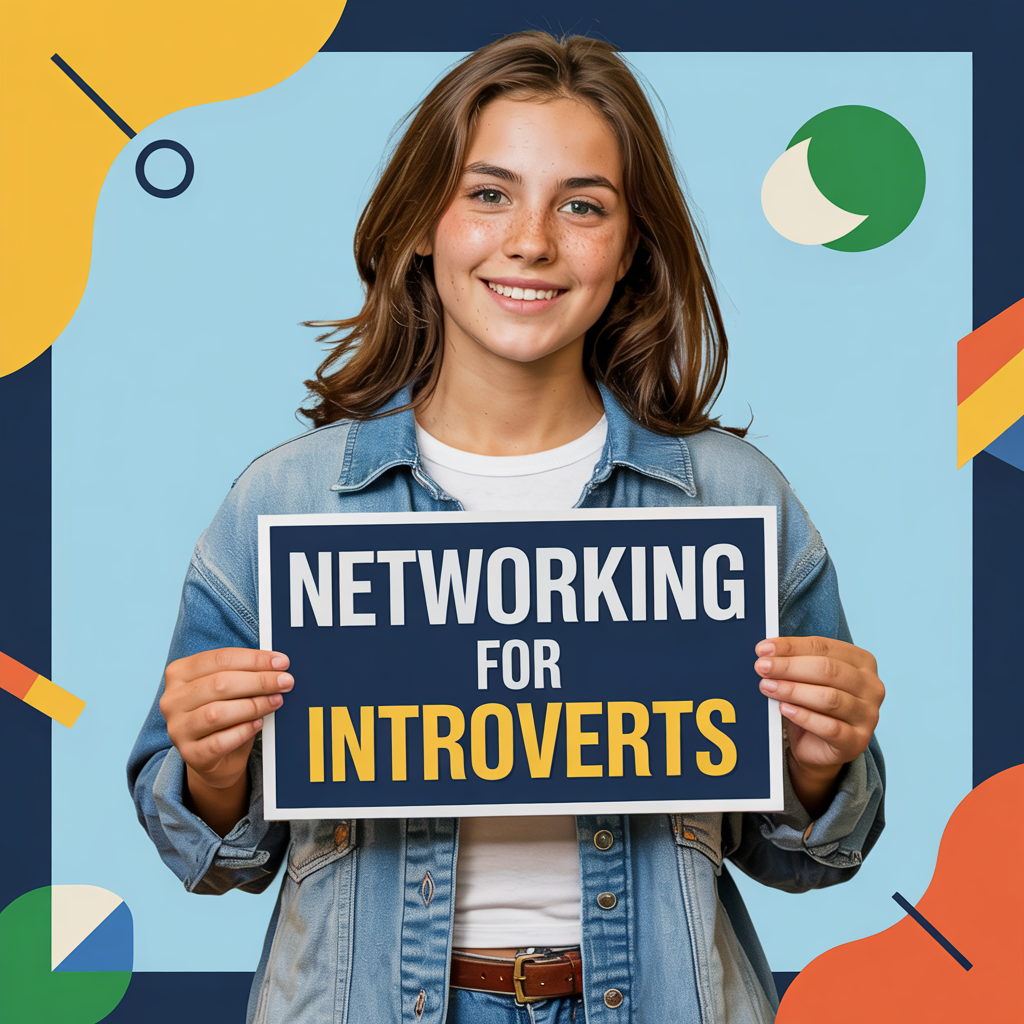Networking for Introverts: Building Meaningful Connections Without Feeling Awkward

Networking is often seen as an extrovert’s game – filled with crowded rooms, endless small talk, and aggressive self-promotion. For introverted students, this can feel incredibly daunting and uncomfortable. However, networking is essential for career development, and introverts bring unique strengths to the table. This guide provides practical networking strategies tailored specifically for introverted students, helping you build meaningful connections without feeling overwhelmed or awkward.
Networking can be effective for everyone, even introverts. Cirkled In provides a platform to build meaningful connections at your own pace.

The Introvert’s Challenge (and Advantage) in Networking
Introverts often find large social gatherings draining. They prefer deeper conversations and can feel uncomfortable with superficial interactions. However, introverts also possess valuable networking strengths:
- Active Listening: Introverts are often excellent listeners, allowing them to build stronger connections through genuine engagement.
- Thoughtful Communication: Introverts tend to communicate carefully and thoughtfully, making their interactions more impactful.
- Building Deep Connections: Introverts excel at forming meaningful relationships with individuals, rather than focusing on quantity.
Reframing Networking: It’s Not Just About Small Talk
It’s important to reframe your perception of networking. It’s not just about collecting business cards or making shallow connections. It’s about building genuine relationships, sharing your interests, and learning from others. Focus on quality over quantity.
Strategies for Introverted Networking Success
Here are some effective networking strategies tailored for introverts:
Before the Event: Preparation is Key
- Research the Event: Find out who will be attending, what the event is about, and what topics will be discussed. This will give you conversation starters and help you feel more prepared.
- Set Specific Goals: Instead of aiming to “meet as many people as possible,” set specific, achievable goals. For example, aim to have meaningful conversations with 2-3 people.
- Prepare Conversation Starters: Have a few thoughtful questions or topics ready to initiate conversations. Focus on open-ended questions that encourage deeper discussion.
- Practice Your Introduction: Prepare a brief and genuine introduction that highlights your interests and what you’re hoping to gain from the event.
- Plan Your Exit Strategy: Knowing when and how you’ll leave can reduce anxiety. Give yourself permission to take breaks or leave early if you need to.
At the Event: Navigating with Confidence
- Arrive Early or Stay Late: These times are often less crowded and provide opportunities for more relaxed conversations.
- Focus on Quality over Quantity: Instead of trying to talk to everyone, focus on having meaningful conversations with a few people.
- Seek Out Smaller Groups: Smaller groups or one-on-one conversations are often more comfortable for introverts.
- Utilize Active Listening: Focus on truly listening to what others are saying. Ask follow-up questions and show genuine interest.
- Ask Thoughtful Questions: Prepare open-ended questions that encourage deeper conversation and allow you to learn more about the other person.
- Share Your Passion: Talk about your interests and passions with enthusiasm. This will make you more engaging and help you connect with others who share similar interests.
- Find Common Ground: Look for shared interests or experiences to build rapport and create a connection.
- Take Breaks: Don’t hesitate to step away from the crowd for a few minutes to recharge. Find a quiet corner or take a short walk.
- Have an “Escape Plan”: If you’re feeling overwhelmed, have a plan for politely excusing yourself from a conversation.
After the Event: Nurturing Your Connections
- Follow Up: Within 24-48 hours, send personalized follow-up messages to the people you connected with. Reference specific points from your conversation to personalize your message.
- Connect on LinkedIn: Connect with new contacts on LinkedIn to stay in touch and continue building your network.
- Offer Value: Look for opportunities to help your new connections. This could involve sharing relevant articles, making introductions, or offering support.
- Nurture Relationships: Networking is about building long-term relationships. Stay in touch with your connections and continue to engage with them over time.
Action Plan: Your Introvert-Friendly Networking Strategy
- Reflect: Identify your networking strengths and challenges as an introvert.
- Prepare: Before your next networking event, implement the “Before the Event” preparation strategies.
- Engage: At the event, focus on quality over quantity, utilize active listening, and ask thoughtful questions.
- Follow Up: After the event, send personalized follow-up messages and connect on LinkedIn.
- Practice: Networking is a skill that improves with practice. Attend events regularly and refine your approach.
Build your professional network with confidence. Cirkled In helps Students connect with others in a comfortable and authentic way.
Final Thought: Embrace Your Introverted Strengths and Connect!
Networking doesn’t have to be a painful experience for introverts. By understanding your strengths, preparing effectively, and focusing on genuine connections, you can build a powerful network that supports your career goals. Embrace your introverted qualities, connect with confidence, and watch your network flourish.
Want more college admissions tips? Check out Cirkled In Library for expert advice and tools to help you build a winning college application and land a spot at your dream school!

![The Future of Work in [Specific Industry]](https://www.cirkledin.com/library/wp-content/uploads/2025/03/Career-Planning-31-360x240.png)

0 Comments